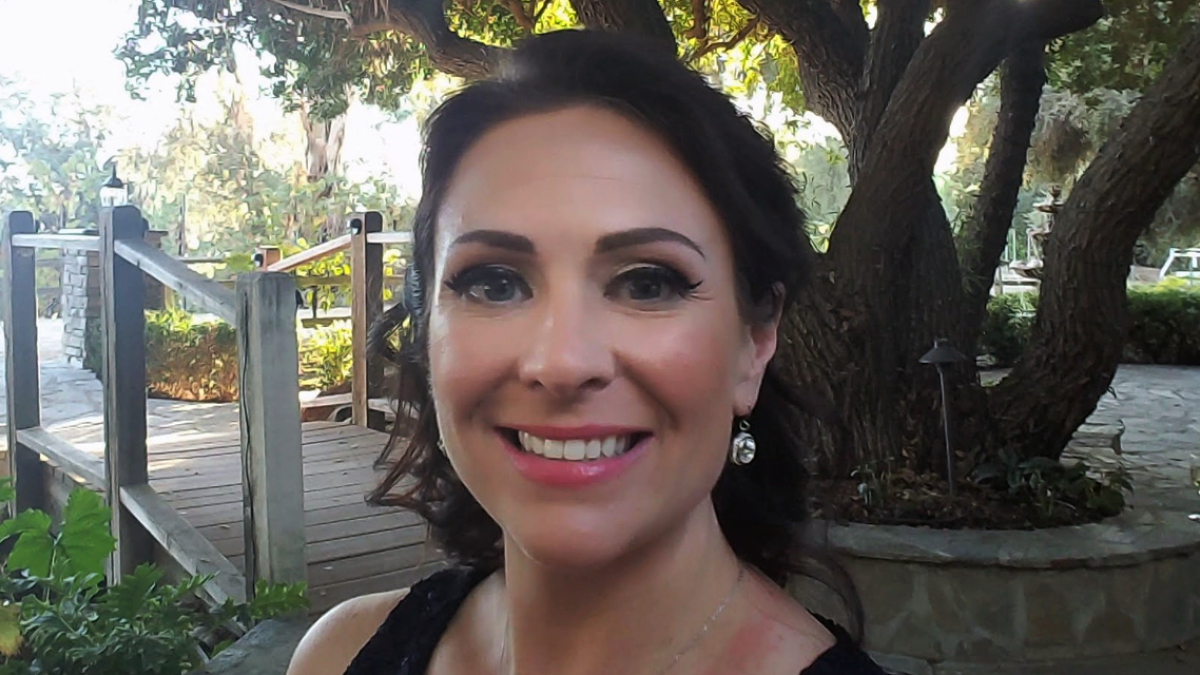ASU Law online degree gives human resources professional the edge she needs

Brenna Leising is a fall ASU Law MLS candidate with an emphasis in human resources and employment law.
Editor's note: This story is part of a series of profiles of notable fall 2020 graduates.
As a human resources professional who wanted to further her HR and labor relations skills without becoming an attorney, Brenna Leising found the Sandra Day O’Connor College of Law at Arizona State University to be the perfect next step.
“I knew that I wanted to do something to advance my knowledge, career and credibility in my field, but it was a question of how,” Leising said.
So she started researching schools, programs and different concentrations related to human resources and discovered ASU Law’s Master of Legal Studies (MLS) program listed on a website as a top-ranked program.
“I actually said aloud to myself, ‘A master’s in legal studies? That is great,’” said Leising, who then began reading even more about the degree, its purpose and the benefits it would provide. And, after years of having an interest and desire to learn more about law but without the usual path of a JD and bar exam, Leising saw ASU Law’s MLS as the ideal degree program for her.
“I soon learned that there were many people just like me out there who would benefit from legal knowledge but just did not need a JD,” said Leising, adding that now, just a year and a half later, “I am graduating proudly with a Master of Legal Studies with a concentration in HR and employment law.”
After graduation in December, Leising and her family are moving to a new city where she will be starting a new position. “This degree helped to give me an edge, allowing me to land the job of a lifetime,” she said.
Question: Why did you choose ASU?
Answer: I chose ASU because I specifically wanted a program that was completely online, accredited with a good reputation, and that offered a concentration in employment or labor law. It also was a plus that my mom graduated from ASU, so she was more than happy I was applying. Go Sun Devils!
Q: What’s something you learned while attending ASU Law – in the classroom or otherwise – that surprised you or changed your perspective?
A: One thing that changed my perspective about the legal system and jurisprudence was reading dissenting opinions in cases. That is where I learned just how delicate the balance of societal impacts versus independent rights is, quite possibly in every single case that sees a courtroom. We all know that laws are made, and courtrooms make decisions that establish common law and precedence, but the truly difficult challenge of weighing potential outcomes that could impact so many people in many years to come was a magnitude I had not really understood until this program. By my second class, I had a whole new level of respect and appreciation for the framework our legal system provides this country.
Q: Which professor taught you the most important lesson while at ASU?
A: Professor Bruce Meyerson taught me that even though you can work on something daily, it does not mean you know the legal history and legal nuances that come with it. In my job, we consistently have arbitrations from our union due to employment disputes, so I assumed that the Arbitration Law class would be easy. Arbitration Law proved to be one of my most challenging and interesting classes. I had to relearn what I thought arbitration law was and educate myself on what the legal underpinnings of arbitration law are aimed at. I enjoyed the Arbitration Law class, especially since Professor Meyerson taught about the history (and) applicability, and there were great discussions on current case examples.
Q: What’s the best piece of advice you’d give to those still in school?
A: Don’t rush it. Spend the time it takes, and you will get so much more than just a degree out of it. Do all the readings, watch all the videos, and think of how what you are reading could apply in your daily life.
Q: If someone gave you $40 million to solve one problem on our planet, what would you tackle?
A: I would invest in research to tackle the problem of unsanitary conditions that millions live in across the world. If there was a multipurpose solvent or spray that could be used for purifying water and for general body sanitization in lieu of bathing that was very cheap and is effective in tiny quantities, it could mitigate illness and disease in areas with limited clean water.
More Law, journalism and politics

ASU committed to advancing free speech
A core pillar of democracy and our concept as a nation has always been freedom — that includes freedom of speech. But what does…

ASU experts share insights on gender equality across the globe
International Women’s Day has its roots in the American labor movement. In 1908, 15,000 women in New York City marched to protest…

ASU Law to offer its JD part time and online, addressing critical legal shortages and public service
The Sandra Day O’Connor College of Law at Arizona State University, ranked 15th among the nation’s top public law schools,…

